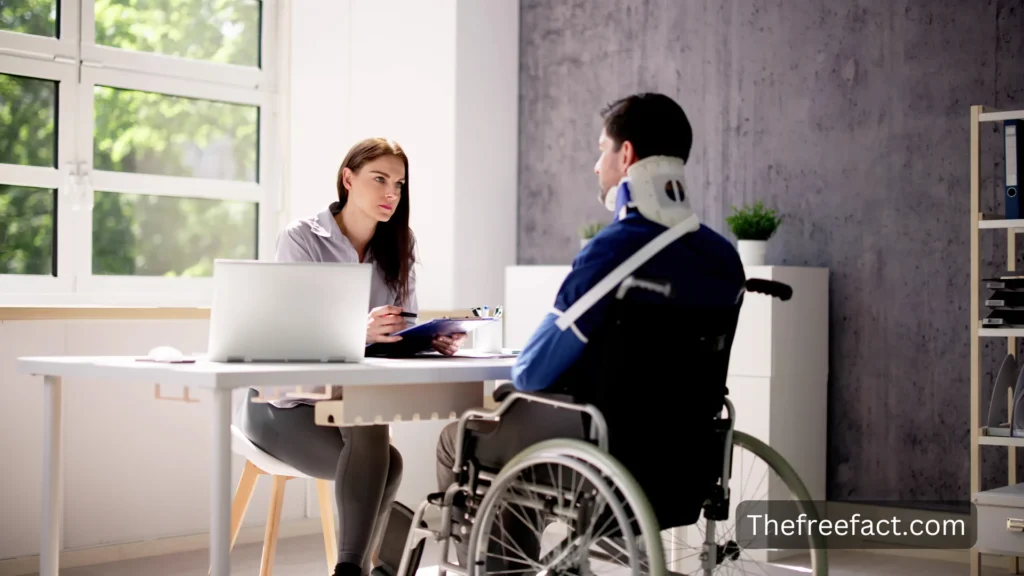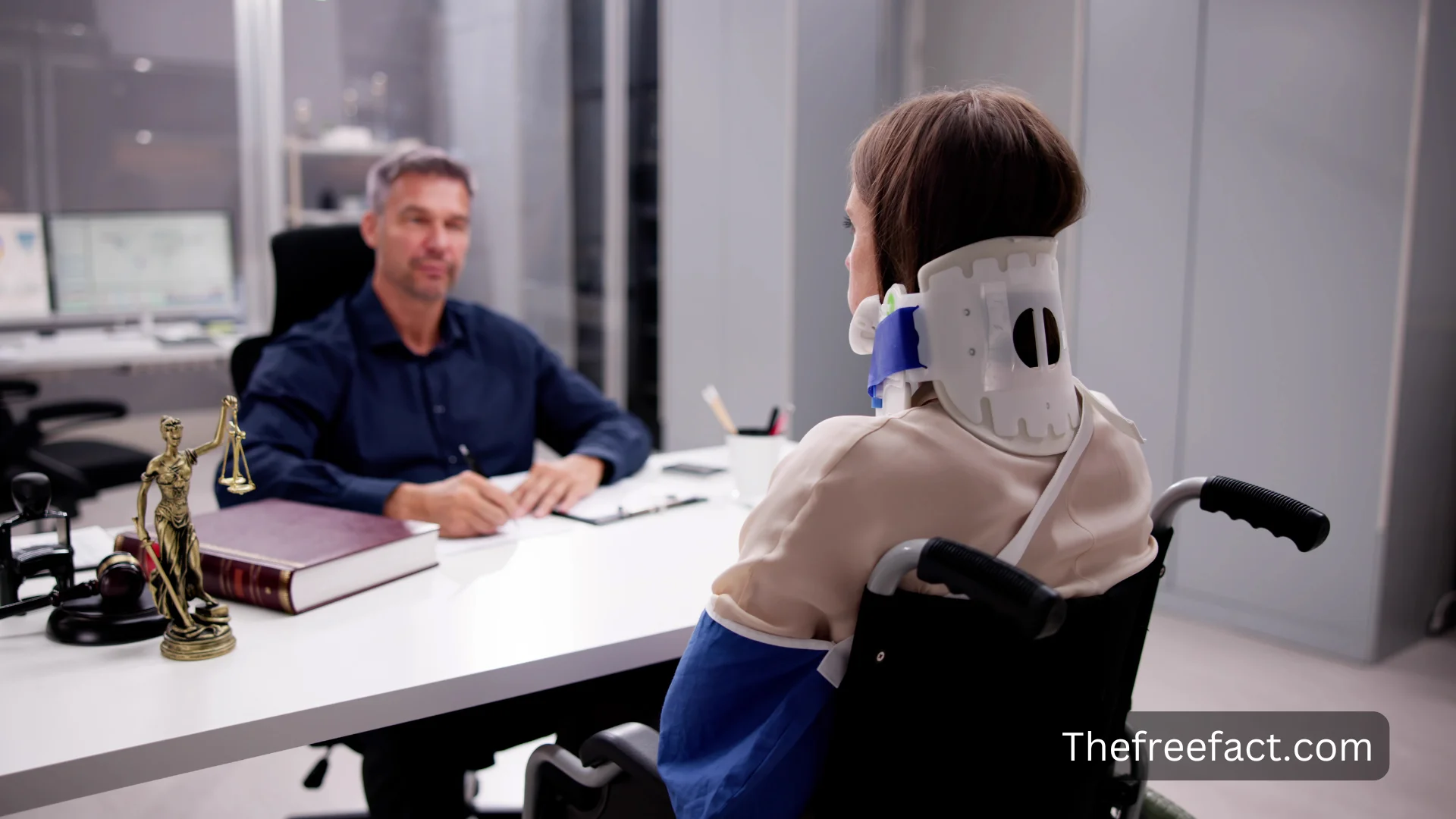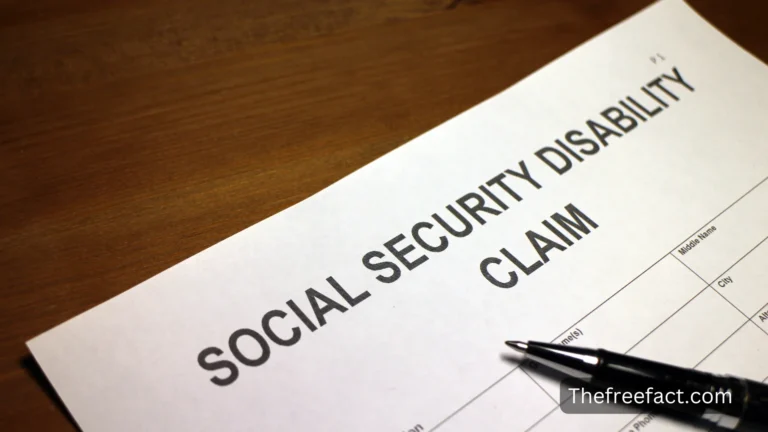Is It A Good Sign When Social Security Disability Sends You To A Doctor?
As part of its disability review process, the Social Security Administration (SSA) determines whether you have a permanent medically determinable physical or mental impairment that limits your ability to work full-time.
Applicants for benefits must provide basic information about themselves (including names, dates of birth, and SS numbers), their work history (the jobs they held in the past 15 years before their disability began), and their medical history.
A disability determination can take anywhere from a few months to over a year once you submit all of the required information to the Social Security Administration. It is possible for the Social Security Administration to determine disability after reviewing your medical records.
Many times, the Social Security Administration will schedule a consultation with a doctor that is approved by the agency. The doctor may perform a physical exam, a mental exam, or a cognitive assessment. Additionally, Social Security can schedule X-rays, MRIs, hearing tests, or other objective exams.
These tests are conducted by psychologists, physicians, and psychiatrists contracted by Social Security. It is important to note that these examiners are independent contractors, not employees of the Social Security Administration. The examinations are conducted by a neutral examiner whose results are reported back to the SSA.

Is It A Good Sign When Social Security Disability Sends You To A Doctor?
A medical opinion that is independent
There is no difference between a Referral Exam conducted by an impartial physician and a Consultative Examination. A Referral Exam does not indicate that a referral will be approved or denied.
In determining your disability benefits, the Social Security Administration often seeks an independent medical opinion. Being asked to see an SSA doctor means that your condition is being evaluated objectively, which may work in your favor.
The importance of a thorough review
The Social Security Administration wants to make sure they have all of the information they need to make a disability determination, so they may send you for a consultative examination. You can use this evidence to confirm the extent of your disability and its impact on your ability to work.
Additional information is being sought by the SSA
The Social Security Administration typically schedules the consultative examination after reviewing your case and determining that more information is required. In some cases, the SSA simply needs updated test results before making a decision because it does not have enough medical records to prove your disability.
Decisions may be delayed
Despite scheduling a consultative examination, the process of processing and reviewing the doctor’s report may result in a delay in a decision. To avoid further delays, you should attend your scheduled exam on time.
Also check: How Much Social Security Does A Child Get For A Deceased Parent?
How Does a Consultative Examination Work?
When you attend a consultation, the examining physician will ask you about your medical history. It is important that you prepare a short explanation of your symptoms and medical condition. Don’t overestimate or underestimate your symptoms, your condition’s severity, or the effects it has on your daily activities when asked.
Your consultative exam may include a range of motion tests, a test for motor strength, and a test for reflexes as part of a physical exam. In a psychiatric examination, the examiner may test your memory, concentration, attention, or attitude. It is essential that you cooperate as best you can and make your best efforts to complete all the tests that are done during the exam, irrespective of the type of exam performed.
Please take notes after the examination to record your experience. Include the length of the exam, the tests you took, and your answers to the examiner. As soon as the examination is completed, the results will become part of your Social Security record. A copy of the results can be obtained upon request.
There’s no guarantee
Consultative examinations are one of the factors that the Social Security Administration considers when determining whether you are disabled. Consultative examinations do not mean your case will be approved even if they are favorable.
Additional factors to be considered
Several factors are taken into consideration by the Social Security Administration when determining disability. These include your age, education, work experience, and skill set. It is therefore possible that these factors could still influence the decision even if the medical report is favorable to you.
Denial of the case is possible
Depending on the circumstances, the consultative examination may be helpful when demonstrating your inability to work full-time due to your disability. You’ll need to present other evidence to show your disability if an examination report is unfavorable. This can be in the form of objective treatment records and your own physicians’ opinions.
In the majority of cases, the Social Security Administration will deny disability claims after sending the claimant to a doctor. You have the right to appeal a denial. Contact LaPorte Law Firm to learn more about your options.
What You Can Expect from a Consultative Exam
In order to receive Social Security Disability benefits, the SSA sometimes requests a CE since medical records documenting your disability aren’t thorough enough, or test results need to be updated before a decision is reached.
Since CEs are usually for specific tests, they are focused on a very specific aspect of your medical condition. The SSA wants information about your entire medical condition in order to determine whether you are eligible for SSDI benefits.
You should add evidence to your file after a CE that confirms your disability and its impact on your ability to work for a living and maintain a gainful job.
Is it Possible to Get Bad News From a CE Doctor Visit?
Although consultative exams are not always successful, they may offer the opinion that you are still capable of performing some work, even if you cannot return to your former job. Social Security Disability might deny your claim if the examination results do not meet the strict definition of disability as defined by the Social Security Administration.
If you need a second opinion to supplement your medical records and are considering requesting an administrative law judge hearing, a Social Security Disability attorney can refer you to a specialist who can assist you in getting one. As your Social Security Disability lawyer for SSDI benefits, you will be able to provide additional medical proof to persuade the judge that you are entitled to SSDI benefits.
These things shouldn’t be told to disability doctors
It pays to be extra careful about what you tell the doctor during the exam, since the doctor will forward these notes to your disability examiner.
Here are some things you shouldn’t tell a disability doctor:
1. Everything is fine with me
Most of us automatically reply, “I’m fine,” even if we aren’t. Many disabled claimants also make this mistake with their CE doctors.
Having a disability, and being unable to work, is okay. But if you tell your doctor that you are okay, they might think that you don’t have a serious problem.
You should speak up if you’re hurting or having a hard time walking. Appearing tough is fine, but not when you’re talking to a disability doctor. Be honest, but don’t speak your entire life story. They’re not your therapist.
2. I don’t feel any pain.
During your disability exam, the examining physician may poke or prod you, for instance, if you claim that a leg injury is preventing you from working because of pain. When you ask the doctor how much pain you’re feeling in that injured leg, he or she may prod it to assess the level of pain you’re feeling.
Oftentimes, as humans, we want to appear tough, so we respond by saying “it doesn’t hurt” or “not really.” If you make them believe that it isn’t that painful, then you will appear to be lying on your disability claim.
3. I’m about to die.
It is important to be honest about your medical condition, but making it sound worse than it is will hurt your credibility. It only takes 15 to 30 minutes for the doctor to see you. Hence, you only have a limited amount of time to convince the doctor that you are disabled. If you appear untrustworthy, the doctor may doubt everything you say.
4. I’m not capable of doing it.
It’s not appropriate to flat-out refuse the disability doctor’s request. Not only will you come across as uncooperative and arrogant, but you’ll also seem rude. Tell them you’ll try it, but don’t compromise your health. It will also help them understand the extent of your disability if you are unable to do what they ask.
5. Doctors don’t have my trust.
Many disability claimants panic during the examination and become a little too vocal about their opinions, something that no doctor wants to hear. It may be true, but telling your disability doctor about it won’t be helpful to you. Remember, you’re trying to gain their trust, but how can they trust you when you don’t?
6. There are only a few times when it happens
If you suffer from intermittent symptoms or flare-ups, don’t minimize their impact during the disability interview. Even if your symptoms are absent, it’s imperative that you describe their severity and frequency accurately. Your disability doctor will be able to understand your limitations if you provide a comprehensive picture of your condition.
7. I just want disability benefits
Disability benefits are something you are seeking, but explicitly mentioning that to a disability doctor isn’t advisable. Instead of describing your impairments and how they affect your daily life, describe your symptoms and how they affect your ability to live normally.
8. I am not taking my medicine
It’s important not to tell the doctor that you don’t take your medication regularly if you are prescribed it for your condition. In spite of the fact that it’s crucial to be honest about your treatment’s effectiveness, outright disregarding medical advice will undermine your credibility. Instead, discuss any concerns or side effects you may be suffering rather than outright disregarding medical advice.
9. I’m still able to work a little bit
You may lose benefits if you mention that you carry out some work-related tasks or activities. The purpose of the disability exam is to determine whether you are capable of engaging in substantial gainful activity (SGA). It is possible that the doctor will deny your claim if you express some possibility that you will be able to function at some level even if you cannot work completely.
10. I can’t remember
Having trouble remembering specific details about your condition is understandable, but it’s important not to use “I don’t remember” as a default response. Your disability claim will be evaluated based on accurate information. Provide as much detail as possible about your condition, even if some details are hazy. If necessary, mention your memory problems.







